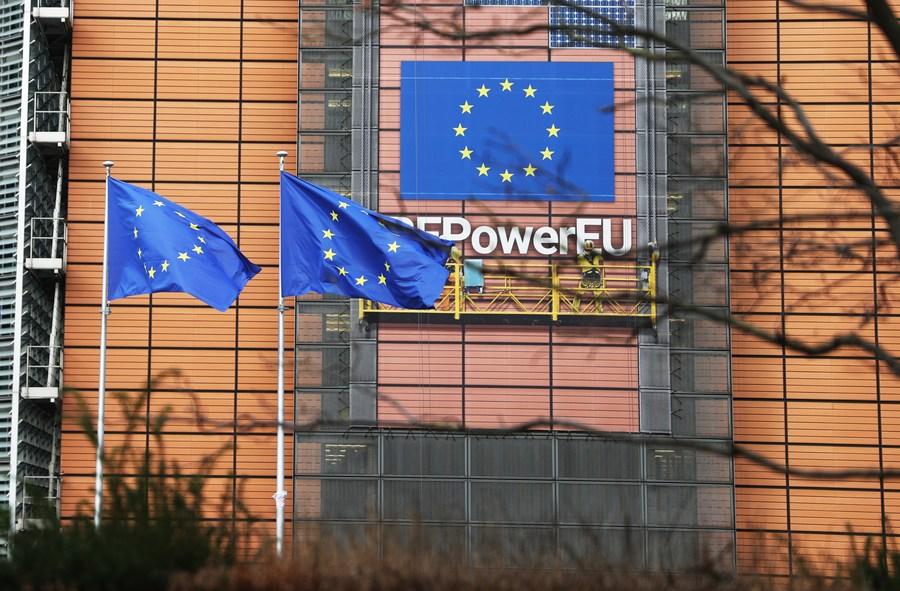EU, G7 leaders urge preventing escalation in Mideast

This photo taken on Nov. 15, 2023 shows part of the European Commission building in Brussels, Belgium. [Photo/Xinhua]
European Union (EU) and Group of Seven (G7) leaders on Sunday called for preventing a further escalation of the situation in the Middle East following Iran's retaliatory strikes on Israel.
"Everything must be done to prevent further regional escalation. More bloodshed must be avoided. We will continue to follow the situation closely with our partners," said European Council President Charles Michel on social media.
"All actors must now refrain from further escalation and work to restore stability in the region," said European Commission President Ursula von der Leyen on social media.
While calling on "all parties to exercise utmost restraint," Josep Borrell, EU's High Representative for Foreign Affairs and Security Policy, said on social media that "this is an unprecedented escalation."
Borrell said that he has called an extraordinary meeting of EU foreign affairs ministers on April 16 "to contribute to de-escalation and security of the region."
After gathering in a virtual meeting on Sunday, the G7 leaders called for de-escalation and restraint on all parties.
In a joint statement, the G7 leaders emphasized "the need to avoid further escalation, calling on the parties to refrain from actions aimed at exacerbating tension in the region."
"To this end, the G7 called for an end to the crisis in Gaza through a cessation of hostilities and for the release of (Israeli) hostages by Hamas. The G7 leaders also pledged to continue providing humanitarian aid to the Palestinian population," said the statement.
The G7 comprises Canada, the United States, France, Germany, Italy, the United Kingdom and Japan, plus the top representatives of the European Union.
Iran and allied armed groups launched coordinated drone and missile strikes on Israel late Saturday night.
Iran's Permanent Mission to the United Nations has said the country's military action against Israel was based on Article 51 of the UN Charter regarding the legitimate right to self-defense and in response to the deadly Israeli attack against the Iranian consulate in Syria on April 1.
Iranian Foreign Minister Hossein Amir-Abdollahian said on Sunday that Iran, at this moment, no longer sought to continue its retaliatory military operation against Israel.